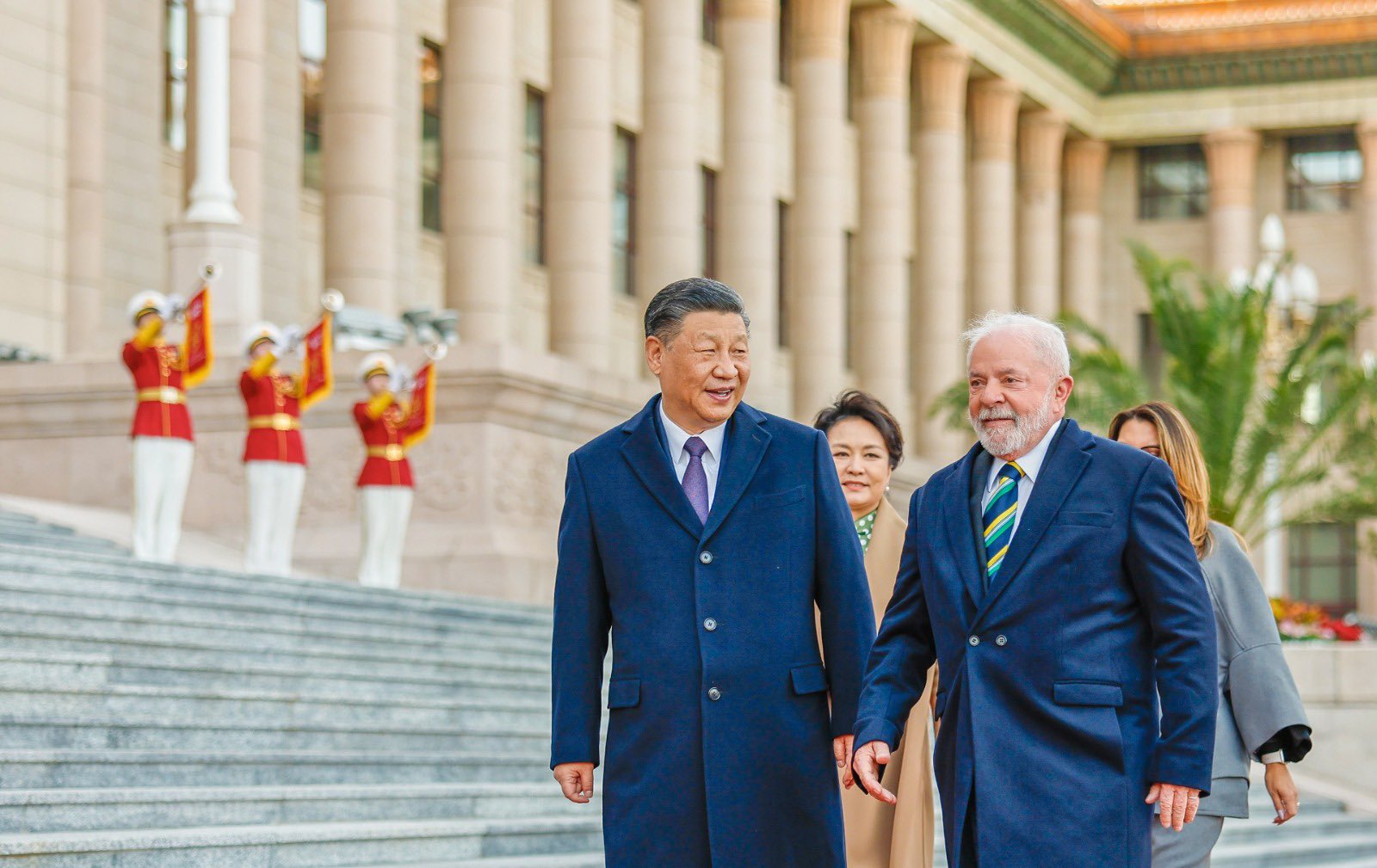
Published 14/04/2023 18:11 | Edited 4/17/2023 4:57 PM
Brazil and China made history this Friday (14). To use an expression dear to President Luiz Inácio Lula da Silva (PT), “never before in the history” of these countries has there been such a comprehensive set of bilateral agreements signed between the two nations.
The feat marks the rapprochement of two of the main members of the Brics, who had distanced themselves during the mandate of Jair Bolsonaro (PL). Under his government, Itamaraty adopted several anti-Chinese positions and called into question the very continuity of the Brics – a bloc formed by the “emerging” Brazil, Russia, India, China and South Africa.
Now, with Lula back on the Planalto, the guideline is to move forward in the partnership. “I have now signed agreements between our countries with President Xi Jinping to advance in areas such as renewable energies, the automotive industry, agribusiness, green lines of credit, information technology, health and infrastructure,” Lula wrote on his networks.
In total, Lula and Xi signed 15 trade and partnership agreements at the Great Palace of the People, seat of the Chinese government. According to Planalto, the amount involved in these agreements exceeds R$ 50 billion.
“The terms signed between the two countries include space cooperation agreements, research and innovation, digital economy and fight against hunger, exchange of communication content between the two countries and trade facilitation”, reported Agência Brasil. In addition to the partnership between the governments, businessmen from both countries announced 20 new agreements, “in areas such as renewable energies, automotive industry, agribusiness, green credit lines, information technology, health and infrastructure”.
Check below the 15 agreements signed by Lula and Xi Jinping:
- Memorandum of Understanding on the Trade Facilitation Working Group between the Ministry of Foreign Affairs and the Ministry of Development, Industry, Commerce and Services of the Federative Republic of Brazil and the Ministry of Commerce of the People’s Republic of China;
- Complementary Protocol on the Joint Development of CBERS-6 between the Government of the Federative Republic of Brazil and the Government of the People’s Republic of China to the “Framework Agreement on Cooperation in Peaceful Applications of Science and Technology in Outer Space between the Government of the Federative Republic of China Brazil and the Government of the People’s Republic of China”;
- Memorandum of understanding on cooperation in research and innovation between the Ministry of Science, Technology and Innovation of the Federative Republic of Brazil and the Ministry of Science and Technology of the People’s Republic of China;
- Memorandum of Understanding between the Ministry of Science, Technology and Innovation of the Federative Republic of Brazil and the Ministry of Industry and Information Technology of the People’s Republic of China on cooperation in information and communication technologies;
- Memorandum of understanding between the Ministry of Development, Industry, Commerce and Services of the Federative Republic of Brazil and the National Development and Reform Commission of the People’s Republic of China for the promotion of investment and industrial cooperation;
- Memorandum of Understanding on Strengthening Cooperation in Investments in the Digital Economy between the Ministry of Commerce of the People’s Republic of China and the Ministry of Development, Industry, Commerce and Services of the Federative Republic of Brazil;
- Memorandum of Understanding (“MOU”) between the Ministry of Finance of Brazil and the Ministry of Finance of China;
- Memorandum of understanding on cooperation in information and communications between the Ministry of Communications of the Federative Republic of Brazil, the National Telecommunications Agency of the Federative Republic of Brazil and the Ministry of Industry and Information Technology of the People’s Republic of China;
- Television co-production agreement between the government of the Federative Republic of Brazil and the government of the People’s Republic of China;
- Memorandum of Understanding between the China Media Group and the Institutional Relations Secretariat of the Presidency of the Federative Republic of Brazil;
- Cooperation agreement between the Xinhua News Agency and Empresa Brasil de Comunicação;
- Memorandum of Understanding between the Ministry of Development and Social Assistance, Family and Fight against Hunger, the Ministry of Agrarian Development and Family Agriculture of the Federative Republic of Brazil and the Ministry of Agriculture and Rural Affairs of the People’s Republic of China on cooperation for social development and rural and fight against hunger and poverty;
- 2023-2032 space cooperation plan between the National Space Administration of China and the Brazilian Space Agency;
- Brazil-China work plan for cooperation in electronic certification for products of animal origin;
- Protocol between the Ministry of Agriculture and Livestock of the Federative Republic of Brazil and the General Administration of Customs of the People’s Republic of China on sanitary and quarantine requirements for processed terrestrial animal protein to be exported from Brazil to China.
Source: vermelho.org.br

